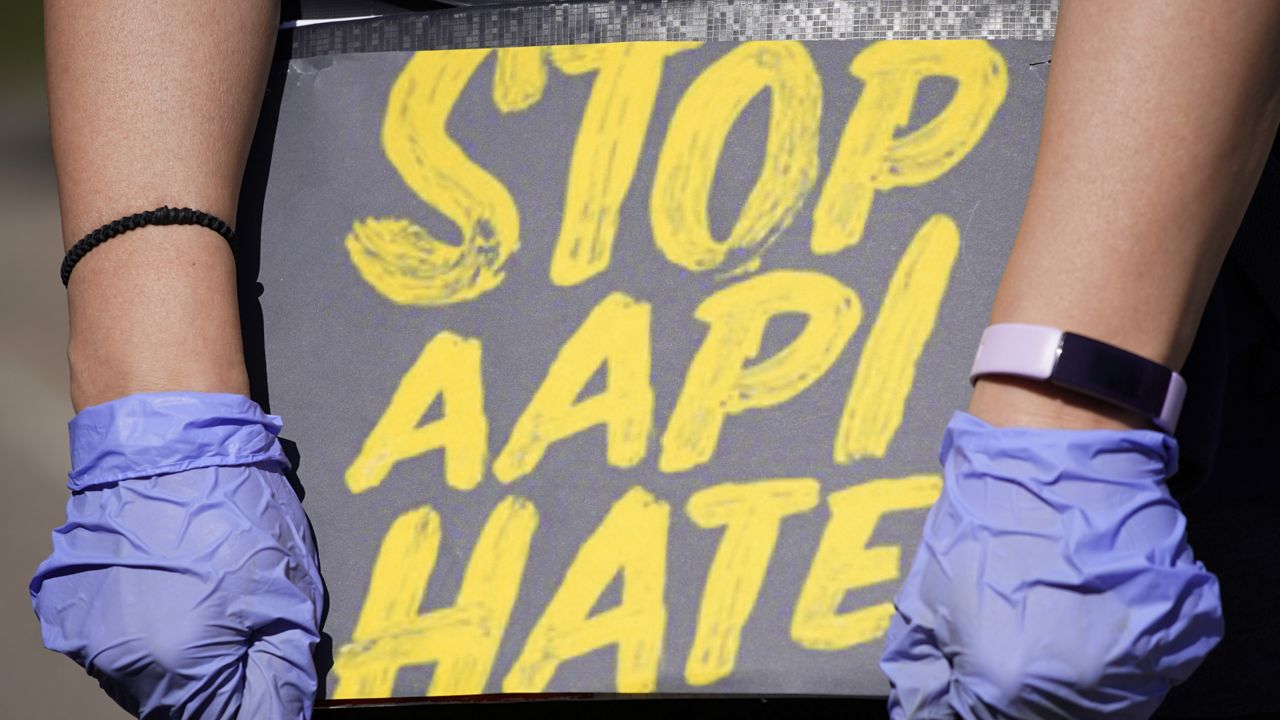In the wake of the shooting in Atlanta that left eight victims dead — six of them Asian-American women — a coalition of 26 governors issued a joint statement last Friday condemning the rise in hate directed towards the Asian-American community.
All 23 Democratic governors signed onto the letter, plus the governor of the territory of Guam; Govs. Charlie Baker of Massachusetts and Larry Hogan of Maryland were the only two Republican state leaders to sign the letter.
“As governors, we take care in protecting the people of our states and territories. The tragic loss of loved ones in Atlanta that left eight people dead, including six Asian Americans, is part of a long and painful litany of acts of hate against Asian Ameriancs in this country,” the letter read in part.
“Today, and every day, we stand in solidarity, in support, and in shared resolve with the Asian American community,” it continued. “Hate will not divide our states, territories, and communities. We condemn all expressions of racism, xenophobia, scapegoating, and anti-Asian sentiment.”
The letter was released on the nationwide Asian American Day of Action, a virtual event that encouraged supporters to take to social media with the hashtag #StopAsianHate.
According to the organization Stop AAPI Hate, there were just under 4,000 reported incidents of discrimination targeting people of AAPI backgrounds from March 2020 to February 2021, but that tally is likely severely underreported.
Police in several major cities saw a sharp uptick in Asian-targeted hate crimes between 2019 and 2020, according to data collected by the Center for the Study of Hate & Extremism, California State University, San Bernardino. New York City went from three incidents to 27, Los Angeles from seven to 15, and Denver had three incidents in 2020 — the first reported there in six years.
The letter went on to say that the recent spike in violence is “part of a history of racism against the Asian American community,” citing the Chinese Exclusion Act, internment camps for Japanese-Americans during World War II, and the mistreatment of Muslims and Sikhs after the September 11 attacks as evidence of the country’s historical abuse of Asian-Americans.
“What is happening to Asian Americans is simply un-American. We condemn racism, violence, and hatred against our AAPI communities, and we must do more to protect, lift up, and support the Asian American community,” the letter concluded.
While the letter did not specify any particular call-to-action, a number of its signatories have either introduced legislation aimed at reducing violence towards the AAPI community, or have begun hosting events aimed at educating the public and hearing from AAPI constituents about how to better protect that demographic.
A little over a week ago, California Gov. Gavin Newsom said the bigotry and violence sparking fear in Asian-American communities “infuriates” him and that it is incumbent on everyone to combat it, reflecting on California’s historic role in perpetuating discrimination against Asians.
“What the hell is wrong with us?” Newsom asked.
He spoke in personal and emotional terms, saying California cannot shy away from its own role in promoting bigotry. The California Legislature discriminated against Chinese immigrants in the 1800s, passing several measures aimed at Chinese people, including requiring special licenses, labor rules and preventing naturalization. In 1882, the federal Chinese Exclusion Act was signed into law. Denis Kearney, a political leader and opponent of Chinese immigration, was active in San Francisco.
“We have to be vigilant, this is something that’s been with us for 150 years in this state and the country,” Newsom said.
Despite the emotional nature of Newsom’s remarks, the governor offered no new policy initiatives. Earlier in the month, Newsom signed off on legislation allocating $1.4 million to Stop AAPI Hate and the UCLA Asian American Studies Center. The funding went to community resources and further tracking of anti-Asian hate incidents.
The Associated Press contributed to this report.



